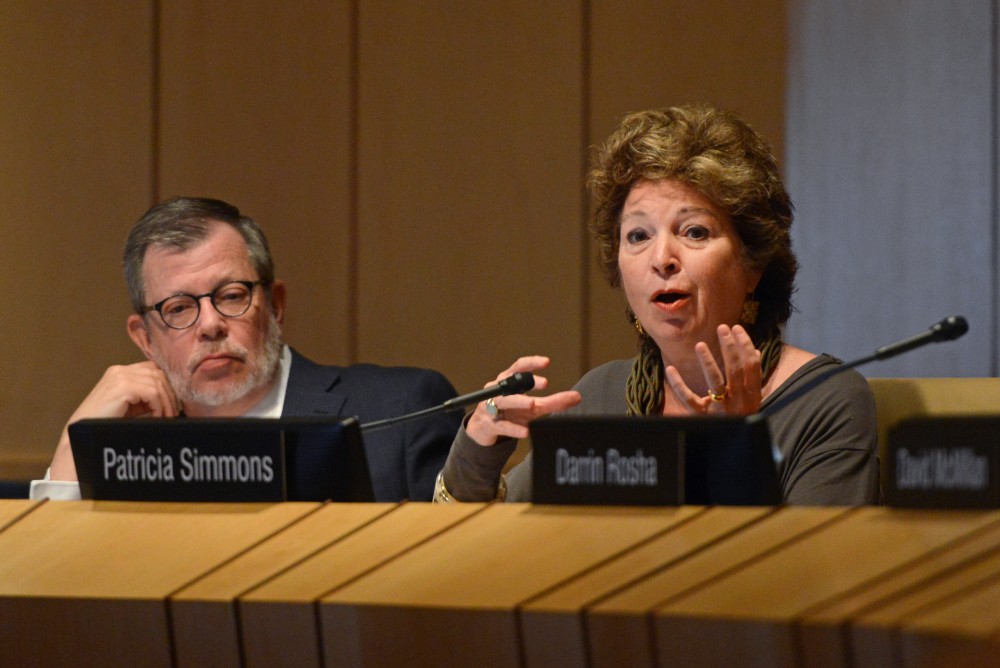The landscape of the University of Minnesota’s Board of Regents will change this spring after a long-serving member’s resignation.
Regent Patricia Simmons announced on March 7 her intention to resign from the board later this spring, which many say will leave an expertise gap. She was first elected to the board in 2003, then again in 2009 and 2015, and served a two-year term as Chair of the Board of Regents — serving in total for more than 15 years.
“It’s been an extraordinary privilege to try to help faculty and students be successful — that’s the role of regents,” Simmons said.
During her tenure as a regent, Simmons said the University has become more attractive to prospective students. And she has seen an increase in applications, causing more competitiveness among applicants. Additionally, she is “thrilled” with increasing graduation rates on all campuses.
“We’ve always had wonderful students at the University, but it’s clear that we are attracting and educating even more students who are going to be successful,” she said.
Simmons said one of the most notable experiences during her 15-year tenure as a regent was leading the search for a new University president that resulted in current University President Eric Kaler’s appointment. She spoke with University stakeholders, including students, professors, farmers, physicians and business leaders statewide to gather input on what they needed in a president and from the University.
“That was an extraordinary experience, and I treasure it,” she said. “I can still hear some of those conversations in my head. I can still see the people.”
Simmons brought a medical background to the Board, with experience as a physician and professor, as well as in executive positions with the Mayo Clinic.
Moving forward, Simmons said the board will need to fill her vacant position with someone who has academic medical expertise. University Provost Karen Hanson called Simmons’ understanding of medical operations important to the Board’s function.
Simmons said a medical perspective is necessary not only because the University’s medical school is an important “force in the state,” but also because the school offers other health degree opportunities in areas like nursing and engineering.
Many administrators who have served alongside Simmons say filling the gap created by her resignation won’t be easy.
Hanson said Simmons’ resignation is a “loss” to the board.
“She has a wealth of experience and expertise and a kind of approach to things,” she said. “All those things have made her a hugely valuable member of the board.”
Regent Darrin Rosha said Simmons’ departure after her unusually long tenure will affect the board because they won’t be able to draw on her experiences anymore.
“It will definitely have an impact, considering that not only is she very experienced as a regent, but also having her breadth of experience as a professional and her application of that experience to the board … Not having that will be a big change,” Rosha said.
Simmons said spring is an optimal time to resign, as she has spent an increasing amount of time out-of-state visiting family and doesn’t want to “short-change” the University. Adding, she will pursue other ventures and likely serve on other boards.
“It’s a great time for me to refresh. It’s a great time for the Board to refresh,” Simmons said. “I welcome the idea of a new person coming on to the board.”








